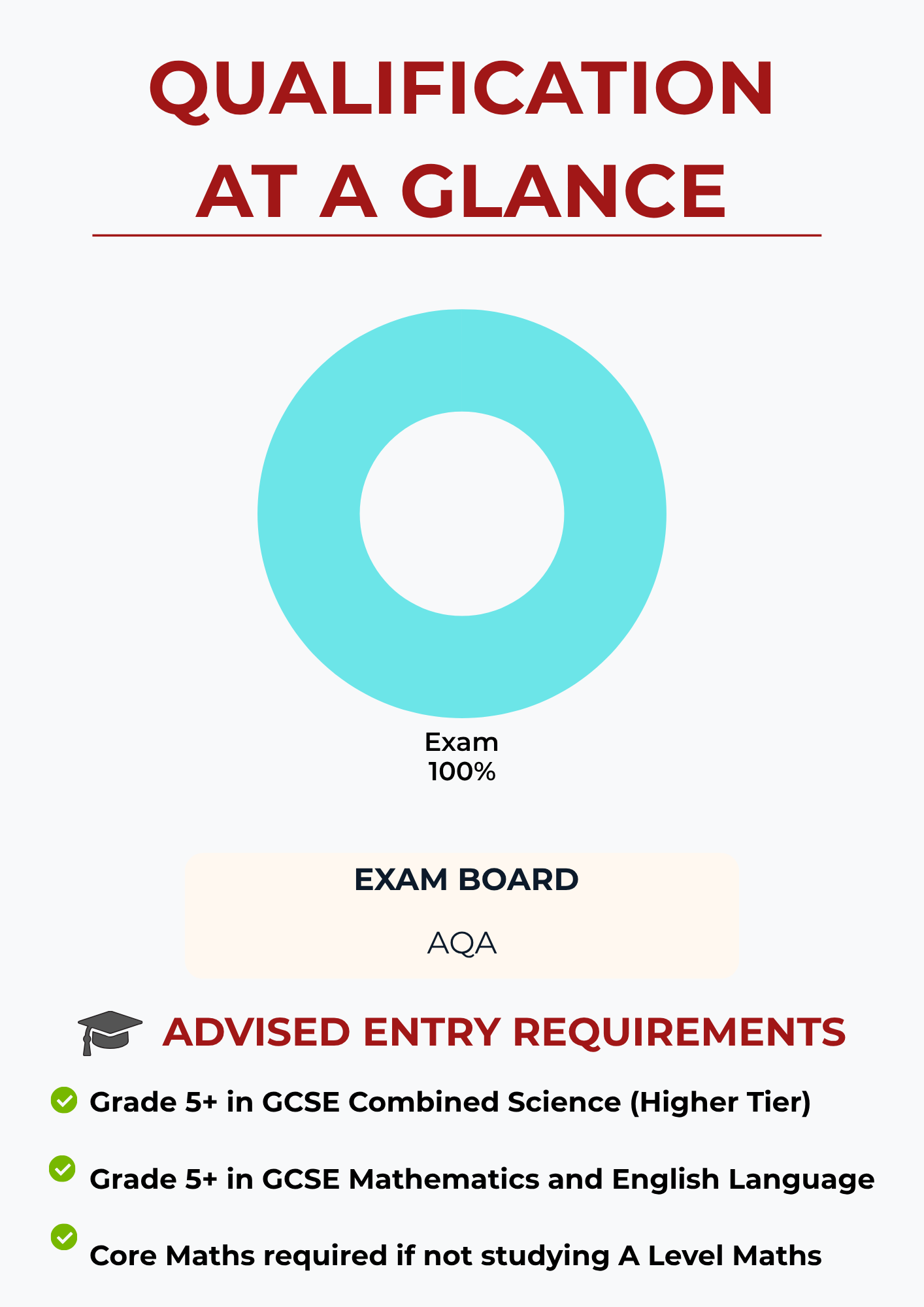A-LEVEL CHEMISTRY
Why Choose Chemistry at JKHS?
Chemistry is a fascinating and versatile subject that opens doors to a wide range of careers in science, medicine, engineering, and beyond.
At John Kyrle High School, we take pride in ensuring that our students are known as individuals. Our Chemistry department provides a supportive, challenging, and intellectually stimulating environment, where staff care deeply about each student’s progress and wellbeing.
Whether you’re planning to pursue a science-based degree or simply want to develop your problem-solving, mathematical, and critical thinking skills, Chemistry will stretch and inspire you—helping you achieve strong academic and personal outcomes.
Exam Board
We follow the AQA A Level Chemistry specification — widely respected for its clarity, depth, and relevance to modern scientific developments.
This ensures our students are thoroughly prepared for further study and future careers in STEM fields.
Assessment Structure
Chemistry is assessed through three written exams at the end of Year 13. These cover:
-
Physical Chemistry
-
Organic Chemistry
-
Inorganic Chemistry
-
Practical skills and data analysis
There is no coursework or NEA, but students must complete a set of required practical activities throughout the course.
These practical skills are:
-
Assessed indirectly through exam questions, and
-
Formally recognised through the Practical Endorsement, which appears as a separate pass grade on the A Level certificate.
Topics Covered
Year 1
-
Atomic structure and bonding
-
Amount of substance and chemical calculations
-
Energetics, kinetics, and equilibria
-
Introduction to organic chemistry (alkanes, alkenes, alcohols)
-
The periodic table (Group 2, Period 3, Group 7) and redox reactions
Year 2
-
Thermodynamics
-
Rate equations
-
Electrochemistry
-
Transition metals
-
Period 3 oxides
-
Acids and bases
-
Carbonyl compounds and aromatic chemistry
-
Polymers, proteins, and DNA
-
Advanced organic analysis (NMR, chromatography, and synthesis)
Trips and Enrichment
While no trips are currently scheduled, we aim to offer university lab days and Chemistry in Action lectures when opportunities arise.
These experiences help students connect classroom learning to real-world applications and explore future career pathways.
Students are also encouraged to take part in the UK Chemistry Olympiad (UKChO), a national competition that challenges and extends their understanding of the subject.
Costs Involved
There are no compulsory costs for studying Chemistry.
Optional trips may involve a small fee for transport or entry, but we always aim to keep costs low and provide financial support where needed to ensure accessibility for all.
Entry Requirements
As a minimum, students will usually need:
-
Grade 5 or above in GCSE Combined Science (Higher Tier) or equivalent
-
Grade 5 or above in GCSE Mathematics
-
Grade 5 or above in GCSE English Language
Students taking A Level Chemistry must also study Core Maths unless they are taking A Level Maths, to support the mathematical elements of the course — particularly calculations, data analysis, and graphical work.
Qualification at a Glance
Exam Board
AQA – A Level Chemistry
Assessment
-
100% Exam (three written papers at the end of Year 13)
-
Practical Endorsement reported separately
Topics Include
-
Physical Chemistry
-
Inorganic Chemistry
-
Organic Chemistry
-
Practical Skills and Data Analysis
Entry Requirements
-
Grade 5+ in GCSE Combined Science (Higher Tier)
-
Grade 5+ in GCSE Mathematics and English Language
-
Core Maths required if not studying A Level Maths
Skills Developed
-
Analytical and problem-solving skills
-
Application of mathematical techniques
-
Practical and investigative competence
-
Scientific reasoning and communication
Enrichment Opportunities
-
University lab days
-
Chemistry in Action lectures
-
UK Chemistry Olympiad participation
